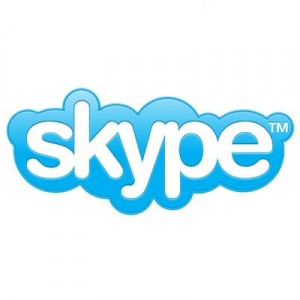June 3rd, 2011 | This post was written by brad2011


I recently had the pleasure of talking to Gregg Hand, founder and owner of the exciting new law firm Hand Law Offices. Friendly and embodying the entrepreneurial spirit, Gregg is a great guy who has much to say and just as much to teach. After our interview, I feel that it is a privilege to share his wisdom with both the potential and current small business owners out there. I hope that you all get as much out of Gregg’s words as I have.
What areas of the law do you focus in?
I focus on small business counseling and litigation. This mainly involves small businesses that don’t have their own inside counseling centers and need help with issues such as how to handle certain customers and deal with lawsuits. You can think of me as an adviser who is there to come up with answers to these types of problems.
When and why did you start Hand Law Offices?
I started Hand Law a little over one year ago in January 2010. In the past years, I have worked in many large D.C. law offices and I’d finally had enough of them. I don’t mean to say that I disliked what I was doing. My problem was more a matter of how these big businesses are run. I didn’t like being told what to do, being constantly monitored, and having to report up the corporate chain even when they didn’t care what I was reporting. I really wanted to do things on my own.
What was one of the biggest challenges you faced and overcame in launching your law firm?
Actually, there were a few challenges I had to go through. Although I am a member of the D.C. bar, I wanted to do my work in Maryland, where I live. But since there are different licensing requirements for every state, I had to take a whole new bar exam to practice here.
Another challenge I had was more of a mental one, which was the fear of ‘Can I start my own business?’ There are so many company decisions that we take for granted until we have to make them ourselves. What computer should I use? What internet should I use? How should my business cards look? In the end, though, you just need to stir up your courage and take a leap of faith.
Probably the main hurdle I had to get over was figuring out how to find customers. With so many options out there, I needed to figure out how to do my website. I also had to figure out if I was going to just do a website or also create a blog for it. I had to decide how I was going to stand out and market myself. These are just of few choices I had to make. That being said, it’s kind of fun. After all, by being your own boss, you get what you want.
How do you advertise yourself to get your clients?
Other than my website and blog, I have Facebook, Twitter, and Linkedin accounts. Of course, most people are more likely to Google you than anything else. However, I think it’s most important to keep in touch with my contact groups. I prefer to get the bulk of my customers through referrals from past and present customers. After that, it’s more a matter of figuring out how to supplement word of mouth through social media.
Have you found that demonstrating your law firm’s trustworthiness to potential clients and website visitors has been a challenge?
Actually, the trumping card for me is just the opposite. Sometimes the referrals I get can be duds. My website is not really for online service so much as it is to allow potential customers to find my contact information and let them know a little bit about me. I like to try a more trustworthy and conservative approach. I mainly want the customer to feel comfortable talking to me over the phone or in person.
What do you do in your down time to relax that allows you to recharge your batteries?
I have three kids, so that keeps me kind of busy. I also like to play the guitar and am taking lessons. The thing is that, with a startup, you’re usually going to be doing more than a nine-to-five workday. The fear of failure to succeed in a startup is definitely a good motivator that keeps me going. However, my schedule is more flexible than if I were still at a big company, so I can take the time that I need to get other things done like if I need to pick up one of my kids from school. Other than that, I enjoy doing what I do.
What trends do you see in the business world that you think are important for small businesses to take note of?
Lately, there has been a shift in the business world. With the internet, things have become a lot more favorable for small businesses. Since people now have the ability to compare businesses with one another, startups have been given a fair chance to compete against large companies because they can operate from around the world just like everyone else.
If you had two lessons that you’ve learned from your business that you could pass on to others about opening their own service businesses, what would those be?
My first lesson is that good enough is fine. Sometimes you simply don’t have the resources to be perfect. You’re better off taking a leap of faith and seeing how it turns out rather than spending forever agonizing about it. Don’t spend too much time over-analyzing everything. After all, it’s not like you’ll make some sort of intractable mistake. What does your gut say? Go for it!
My second lesson is that, in general, people have good intentions. Sometimes people need help and propping up along the way. For example, if a customer has not payed your bill for a while, it doesn’t mean they are trying to stiff you. You need to realize that, even if this is your most important bill, it isn’t necessarily theirs. You should take the time to remind them of it, but understand that everyone has their own priorities.
Just before we wrap up, do you have any parting thoughts or guidance for our readers and the small business community?
The most important thing is to let everyone know that you’re starting out. Don’t be afraid to tell people about your new business. If people can help you out, they will! In fact, I’d say that this should be put even before the hard stuff like setting up a website. Plant your seeds early.
Thanks to Gregg Hand for a great interview! If you have any questions for Gregg, feel free to leave a comment below.
 Tweet This Post
Tweet This Post











 As cybercriminals become more advanced and efficient, all businesses must recognize and prepare for the imminent threats of online hackers. The issue of cyber-attacks has made its way to the Senate, debating the amount of power the president should have in dealing with cybercrimes (Full story
As cybercriminals become more advanced and efficient, all businesses must recognize and prepare for the imminent threats of online hackers. The issue of cyber-attacks has made its way to the Senate, debating the amount of power the president should have in dealing with cybercrimes (Full story  Hey guys! This is Jason and I am a new intern here at Kikscore!
Hey guys! This is Jason and I am a new intern here at Kikscore!


